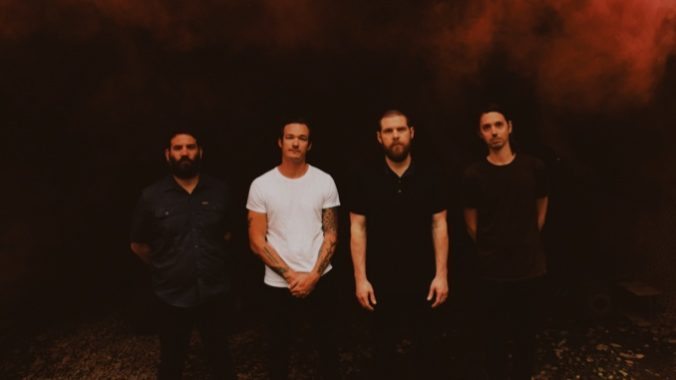Manchester Orchestra Realize Their Vision
The Atlanta alt-rockers discuss their latest album, The Valley of Vision, and its VR film counterpart
Photo by Shervin Lainez
Virtual reality was once a niche phenomenon. With large companies like Sony and Oculus leading the pack of VR gaming, and the rise of popular, Guitar-Hero-indebted titles like Beat Saber, it has slowly yet unequivocally infiltrated pop culture to the point of omnipresence. It’s so universally recognizable that beloved television shows like Bob’s Burgers have entire episodes revolving around it. Still, its ubiquity has seeped into one of the most unlikely places: indie rock.
The Atlanta alt-rockers Manchester Orchestra are harnessing it as another tool to fully realize their artistic vision. Their latest album, the aptly titled The Valley of Vision, is accompanied by a short VR film of the same name. During the recording sessions for 2021’s The Million Masks of God, filmmaker Isaac Deitz showed up at the studio. Deitz made the music video for the tender Million Masks cut “Telepath,” and he and the band struck each other as kindred spirits who wanted to share their art in novel ways. That’s when it dawned on frontman Andy Hull to collaborate with Deitz on an album and film that spoke to each other.
“The more we talked about it and thought about how we could uniquely find a way to present it and film it, we realized people really aren’t making this stuff,” Hull explains. “What’s really cool about it is you don’t have to have VR headsets in order to experience it. We wanted to give the fans an opportunity to experience it in multiple ways.”
The film component can be viewed with or without VR, which is particularly advantageous for guitarist Robert McDowell, who represses the urge to vomit any time he wears an Oculus Rift. “I’m going to eventually have to watch it and just be sick through the entire thing,” he says. “I’ve been able to experience it on the computer, but I’m jealous of everyone who gets to really live inside of it.”
The Valley of Vision is the shortest Manchester Orchestra record yet by a significant margin; it’s composed of only six songs, clocking in at just over 26 minutes. Regardless, its brevity doesn’t make it any less ambitious, especially considering its interdisciplinary, multimedia mindset. As both Hull and McDowell explain, the new album extends the narrative laid out on their previous two entries, A Black Mile to the Surface and The Million Masks of God.
-

-

-

-

-

-

-

-

-

-

-

-

-

-

-

-

-

-

-

-

-

-

-

-

-

-

-

-

-

-

-

-

-

-

-

-

-

-

-

-








































